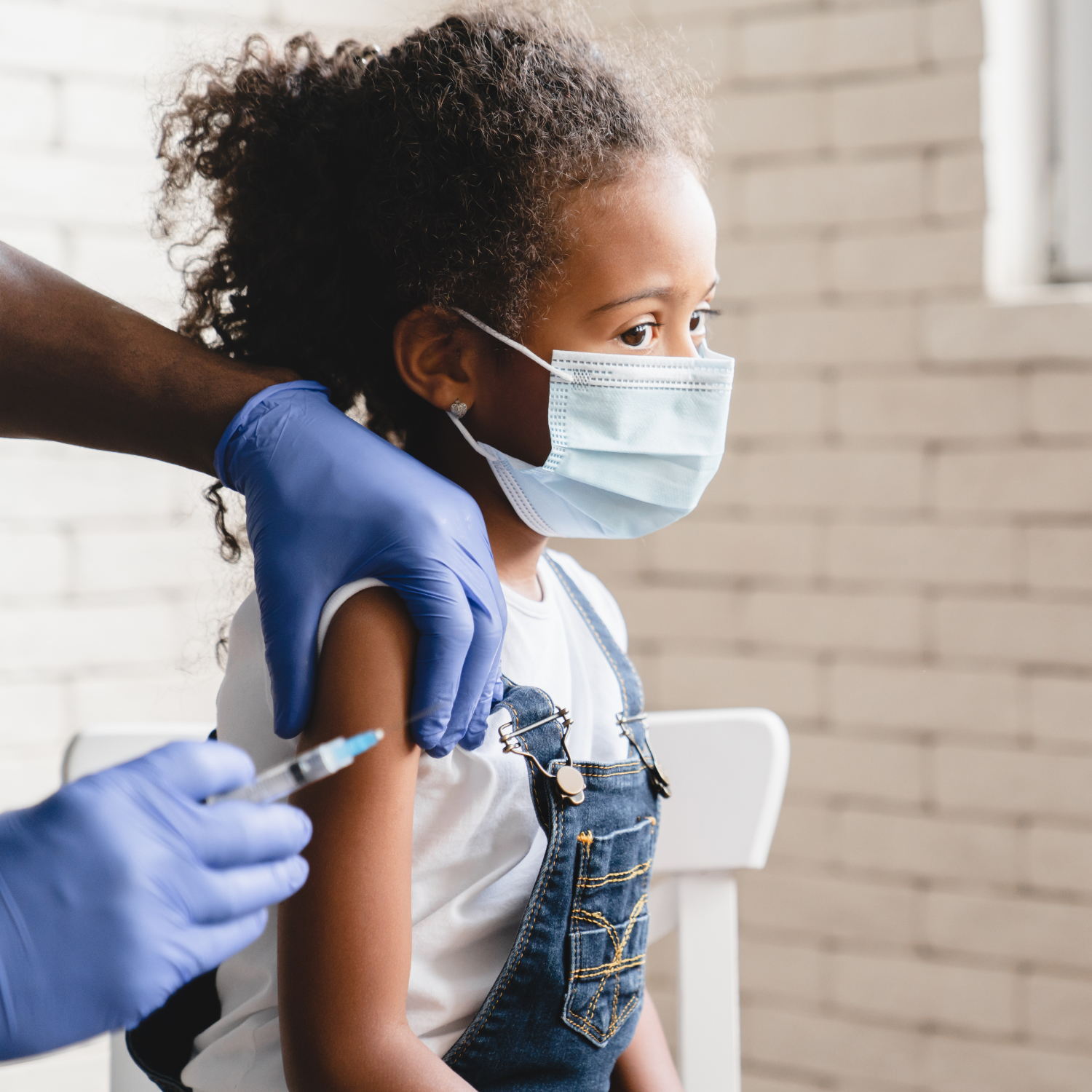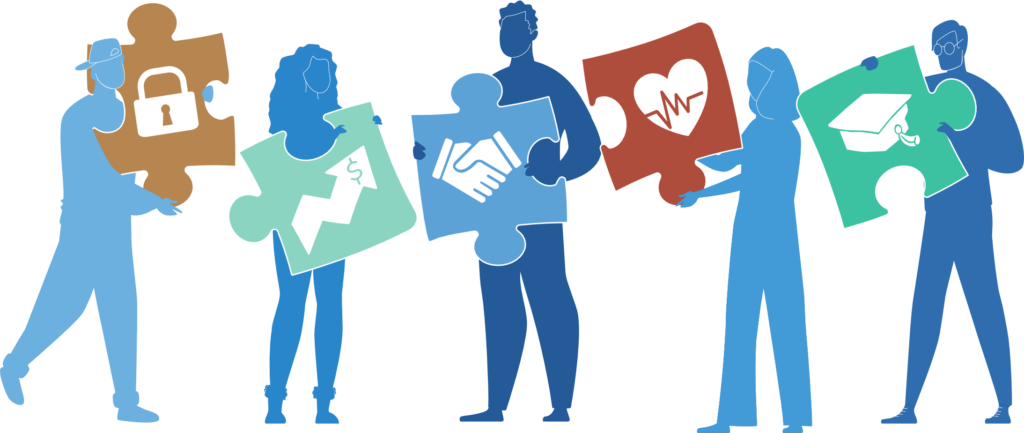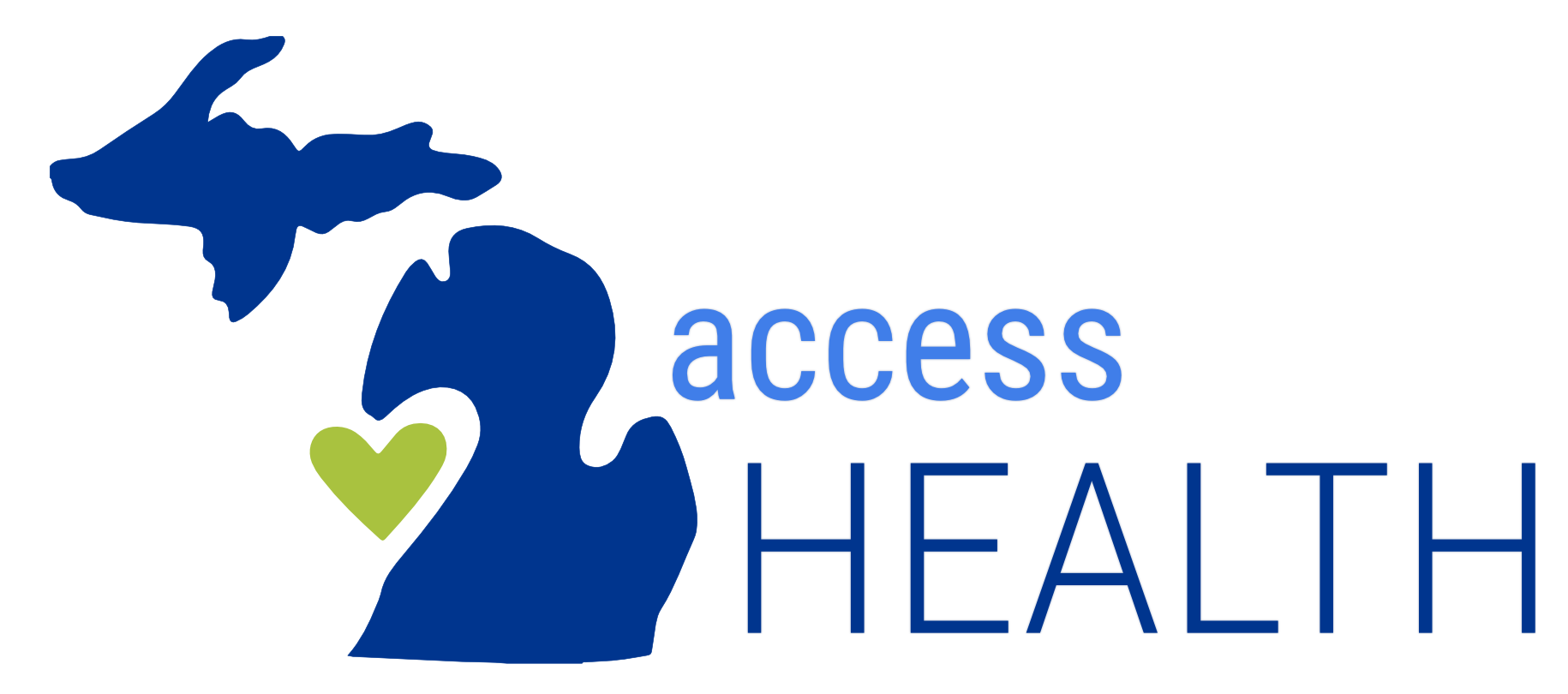supporting community health
Fostering Change through Collaboration
We believe that we can make the strongest impact on a community by working with the community and looking at the bigger picture.
Our community programs address Social Determinants of Health, which are the many underlying factors in a person’s life that have a direct affect on their overall health and wellbeing.
Approximately 80% of the factors that contribute to a person's health are dependent on the overall health of the community in which they live.
We support community health and wellbeing through various grassroots programs that instill hope and build dreams
Our Programs

P4VE: Partnering for Vaccine Equity
With funds from the CDC Foundation and by through a community-led impact model, Access Health is working to increase COVID-19 and influenza vaccination rates in disproportionately impacted communities.
Local implementation has been focused on expanding partnerships, strengthening communication pathways, identifying and training trusted messengers, addressing misinformation, and distribution of free COVID-19 test kits to the community to remove access and cost barriers to testing. Future years will shift focus from COVID-19 to social need impact.

Access C3 Health Plan
Access Health’s anchor program is a multi-share community health plan with 25 years of proven impact and successful replication in multiple communities. This $0 deductible, low premium, and low cost-sharing plan integrates health coaching to address barriers to optimal health.
In 2022, an independent actuarial study by State of Michigan found that Access Health coverage is more robust than most plans offered on ACA marketplace and meets criterial for gold metal tier.
Eligibility is based on income (134-350% of federal poverty level) in partnership with area businesses to support low-income working families.

NIH ComPASS – Muskegon SHIP
This program aims to improve health outcomes by removing barriers to economic mobility. Funded by the National Institute of Health, Muskegon SHIP (Sustainable Health Investment Partnership) will work with community partners to design, implement, and evaluate a countywide wellness plan.
Access Health is 1 of 25 organizations nationwide to receive a 10-year, $12 million NIH ComPASS award for engaging directly with community organizations to impact structural barriers to health.
Community Information Exchange (CIE)
Community-engaged development of a social care coordination tool to align both providers and data from the health and social care sectors.
Access Health is the technology development convening partner for this Muskegon CHIR (Community Health Innovation Region) coordinated effort. Additional lead partners include United Way of the Lakeshore (community organization engagement), CALL-211 (resource directory), clinical partners, and health plan partners.

RIP Medical Debt
This Community Impact partnership to address the causes and impact of medical debt, including RIP’s abolishment of $25M of medical debt for Muskegon County residents.
Local activities include community-engaged research and advocacy on medical debt, two community action teams to address medical debt, expansion of local assessment tools to understand impact of medical debt, policy evaluation to explore opportunities to address root causes of medical debt.
Fiduciary and Backbone Services for Community Initiatives

How YOU Birth Doulas
Access Health provides fiduciary and backbone services for a community-led effort to reduce health disparities by improving birth outcomes in populations of color through coordinated doula access and culturally competent care.
How YOU Birth doulas works to build up the community doula workforce with free training, ongoing education, startup materials, administrative support to leverage Michigan’s recent Medicaid coverage for doula services.
To date, the How YOU Birth Doula initiative has recruited and trained 11 birth doulas and trained 17 postpartum doulas.

Muskegon CHIR
Access Health is part of a broad group of stakeholders that make up the Muskegon CHIR (Community Health Innovation Region), an initiative that works to align policies and resources to collectively improve the health of the community.
The work of the CHIR addresses factors that affect Muskegon residents’ health, such as housing, transportation, food insecurity, and access to high-quality medical care.
Empowering Community-Led Action

Muskegon Health Equity Council
Access Health provides administrative support for The Muskegon Health Equity Council. The Council exists to promote and advocate for advancement in health equity in Muskegon County by empowering BIPOC communities through cross-sector collaboration and inclusive wellness.
In 2023, the Michigan Public Health Institute awarded the Council $250,000 to invest in Muskegon County grassroots organizations. The funds were allocated to support 18 programs dedicated to promoting health equity.

Health Resilience Zone
Through the Muskegon CHIR’s collective impact process, Access Health and its partners developed a Health Resilience Zone model. The goal of this initiative was to improve population health at the neighborhood level, while building capacity within local grassroots organizations.
BluePrint Project: Muskegon Heights Economic Opportunity Initiative
This placed-based SDoH (social determinant of health) Impact Hub centered on the economic advancement of Muskegon Heights residents.
Focus is rooted in community prioritization – job training, entrepreneurial support, and addressing barriers to stable and improved employment such as childcare and transportation.
Livability Labs
Bringing together business leaders, educators, health and human services organizations, government officials, and residents, the first Livability Lab in 2019 provided a forum for people to work together to address challenges facing their community.
Together, this group brainstormed creative ways to address barriers that can impede the good health and prosperity for all residents of Muskegon County. The result was a community-led 100 Day Challenge, where smaller teams worked to enact the changes discussed at the event.
Since then, the work toward positive action and change has continued through 4 more Livability Lab Events!

